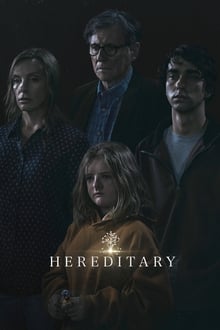
Rewards concentration [contains spoilers]
The 9th spirit in order is Paimon; a great king, & very Obedient to Lucifer, he appeareth in the forme of a man, sitting upon a dromedary, with a Crowne most glorious on his head. There goeth before him a host of spirits like men with Trumpets and well sounding Cymballs, and all other sorts of musicall Instruments &c. he hath a great voice, and roareth at his first comming, and his speech is such as the Magician cannot well understand, unless he compelleth him. This spirit can teach all arts and siences, and other secret Things; he can discover what the Earth is, and what holdeth it up in the waters, & what the wind is or where it is, or any other Thing you desire to know, he giveth dignity and confirmeth the same, he bindeth or maketh a man subject to the Magician if he desireth it he giveth good familiars, and such as can teach all arts, he is to be observed towards the North west, he is of the order of dominions and hath 200 Legions of spirits under him, one part of them is of the order of Angells & the other of Potentates, If you call this spirit Paimon alone you must make him some offering to him & there will attend him 2 kings called Bebal & Abalam, & other spirits of the order of Potentates in his host are 25 Legions because all those spirits which are subject to him, are not allwayes with him unlesse the Magician compelleth them. His Character is this which must be worn as a Lamen before thee &c.
When her secretive mother dies, miniatures artist Annie Graham (Toni Collette), is almost relieved, as the two had a deeply fraught relationship. With two children, 16-year-old Peter (Alex Wolff) and 13-year-old Charlie (Milly Shapiro), and a loving husband, Steve (Gabriel Byrne), Annie is determined to do a better job of raising a family than she felt her mother did. However, when she suffers another, far more devastating loss, Annie's mental state becomes increasingly precarious, as a series of terrifying revelations about her ancestry are slowly revealed.
Hereditary is writer/director Ari Aster's debut feature. However, what's worth noting is that the film is produced by Lars Knudsen, who also produced The VVitch: A New England Folktale (2015). This is significant insofar as Hereditary bears more than a passing resemblance to Robert Eggers's film. Mood, tone, theme, pacing, narrative structure, shot composition; all recall The VVitch at times. Even the plot shares some important beats, most evident in the last shot, which is both narratively and compositionally identical to the shot in The VVitch when Black Phillip speaks for the first time - a BCU on a possessed character as a disciple speaks off camera. And like The VVitch, you either go with the plot and let it burrow under your skin, or you remain detached and most likely find the whole enterprise unintentionally hilarious.
In a more generalised sense, there is quite a bit to praise here. For a start, to say the film is a horror is to basically give away the last 20 minutes, as up until that point it's a superbly realised semi-realist study of the crippling psychological disintegration that can accompany bereavement. Speaking of giving things away, very unusually for a Hollywood film, Hereditary's trailer brilliantly misdirects the audience, making it seem as if the film revolves around the death of Annie's mother, when in actual fact, this plot strand is abandoned at the end of the first act, after which the death of Charlie becomes the central focus.
One thing the film does especially well is reward viewers who are paying attention. There are multiple hints and signs throughout of what is going to happen in the last act, and one especially well structured reward involves by far the creepiest moment in the film; the blond man standing in the shadows of the doorway, barely visible, smiling manically at Peter. This is actually the second time we see the character; he is also at the wake early in the movie, watching Charlie approaching the coffin, and, again, smiling unnaturally. This can be easily missed if you're not paying attention, and it's an extremely well realised pseudo-Easter egg. Also worthy of praise is Toni Collette, who gives a superb performance that partly recalls Shelley Duvall's hysterics in Stanley Kubrick's The Shining (1980). Collette's ability to communicate everything in her psyche by simply changing her facial expression is outstanding, and somewhat reminiscent of that extraordinary piece of wordless acting by Halle Berry in the last scene of Marc Foster's Monster's Ball (2001). This is especially noticeably towards the end of the film, when Annie is alternating between being herself and being controlled by Paimon; Collette's mastery of her own facial expression tells the audience everything it needs to know about what is happening.
Joshua Rothkopf, in his review of the film for Time Out calls it "a new generation's Exorcist." That's a bit over the top; it won't have half the same kind of societal impact as William Friedkin's film did, and it's nowhere near as good as the best horror film of the last few decades, Daniel Myrick and Eduardo Sánchez's The Blair Witch Project (1999). However, it's very well made, is creepy as hell, dares to put real grief on screen, and features excellent performances (and, thankfully, only a couple of jump scares). Well worth seeing.